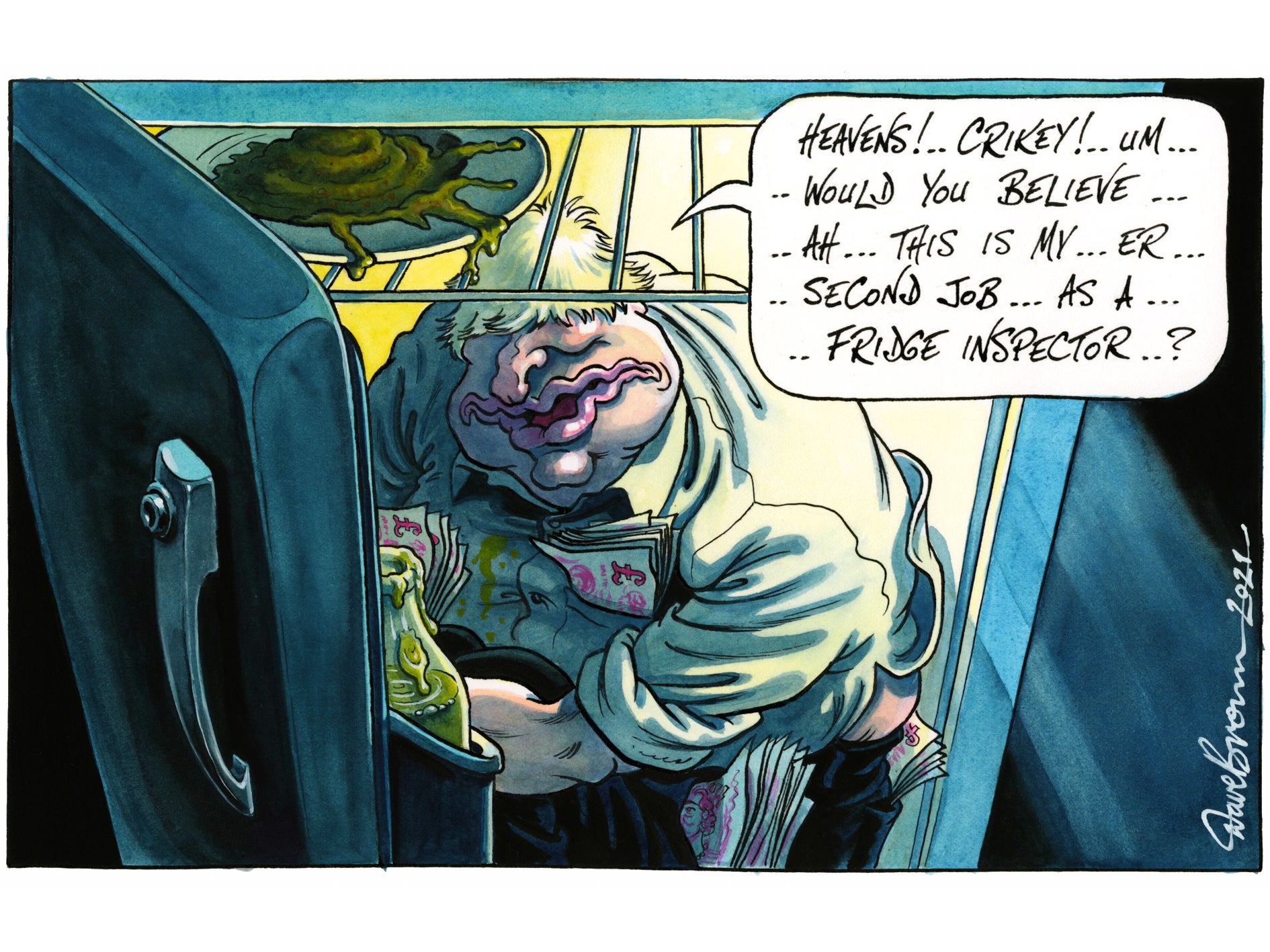The first job of a member of parliament can be found in the name. Parliament is derived from the French, “parler”, to speak. Parliaments, at least in theory, wield influence through the power of persuasion. So it is something of a wonder that many MPs seem able to command such large sums for second jobs, while being so demonstrably and publicly awful at the first.
Attempts by members of Her Majesty’s government to justify what their colleagues get up to very much not in their spare time have ranged from the embarrassing to the non-existent. Trade secretary Ann-Marie Trevelyan really did say, on live television, that second jobs for MPs “bring a richness to our role as members of parliament”. That much, certainly is true.
And it brings more of a richness to some, than to others. Geoffrey Cox, who is, in name only, the member of parliament for West Devon, appears to have spent April not only living in the British Virgin Islands (and voting remotely in the House of Commons, as Covid rules permitted), but being paid hundreds of thousands of pounds giving legal advice to officials over corruption charges brought against them by the UK’s own government, of which he was, until fairly recently, a member.
Despite his evidently sought after and immensely valuable advocacy skills, the former attorney general has declined to provide any kind of public explanation, or defence, of his actions. The House of Commons spent three hours debating “parliamentary standards” on Monday, in the wake of, first, the outrageous behaviour of the now ex-MP Owen Paterson, and second, the even more outrageous attempt, by the government, to get him off the hook. Boris Johnson decided not to say a word, or even to show his face.
The issue of second jobs, and second incomes, for MPs, returns to the public conscience every so often with metronomic certainty: people are outraged, and then it recedes again with nothing having changed. Part of the reason is that it is not exactly clear what needs to change. Nobody objects to MPs carrying on working in A&E, or as doctors or paramedics, as many do. It is essential that they do so should they wish to retain their professional credentials, and thus their right to practice. Being an MP is not, after all, meant to be a job for life, though it so very often is (which is arguably the greatest flaw in the system of all).
Everybody has a right to a legal defence, and lawyer MPs have the same right to keep their hand in, so to speak, as colleagues in professions of which the public are more forgiving. Where the public appear to be most outraged is where the sums involved are astronomically high, as in the Cox case. But it would be a quite bizarre state of affairs were parliament to welcome those in the professional services, but only those who hadn’t been successful enough to command the highest fees.
To keep up to speed with all the latest opinions and comment sign up to our free weekly Voices newsletter by clicking here
There will now be attempts to reform the system, to change the rules, but the rules that already exist are not entirely ineffective. It is already explicitly prohibited to engage in any kind of lobbying work for any company from which an MP takes remuneration. Owen Paterson broke these rules, and there have been consequences for him for doing so. The problem is that, more often than not, it is very hard to see how the amounts of cash paid to former ministers by private companies can be for anything other than access. Mr Paterson has a lot more free time on his hands now. One suspects that free time will no longer be quite so valuable to his private sector paymasters. The greater problem is that Mr Paterson, who still insists he did nothing wrong, was consequently rather less artful in concealing their intentions than others MPs, who are rather more aware of what they’re up to.
In Geoffrey Cox’s case, the source of the public anger, apart from the huge sums, is the sheer arrogance of disappearing abroad for a month and doing private work, while also taking a taxpayer-funded salary to represent constituents thousands of miles away. But this, also, is not the usual run of things. But for the pandemic, such a jaw-dropping dereliction of duty would not have been possible.
These complexities have already made it easy for MPs to claim the problem is too hard to solve. That the policing, and the prevention, of some kinds of second jobs but not others would be too complex. This, by the way, from the same people who still intend to meaningfully regulate the entire internet.
The change that needs to happen is clear enough. In the Owen Paterson example, it is absurd that, after taking on consulting roles for two food companies whose work directly involves the department for which he had recently been stood down as minister – Defra – he is only deemed to have acted inappropriately once he had actually done any meaningful work for them.
No government would be absurd enough to introduce a law that, for example, made it legal to buy fireworks, but illegal to light them. Yet that, fundamentally, is the rule here. That is the rule that needs addressing. The rest is sound and fury. But members of parliament will be hoping there will be enough of that to make the whole issue just go away again. It usually does.




Join our commenting forum
Join thought-provoking conversations, follow other Independent readers and see their replies
Comments